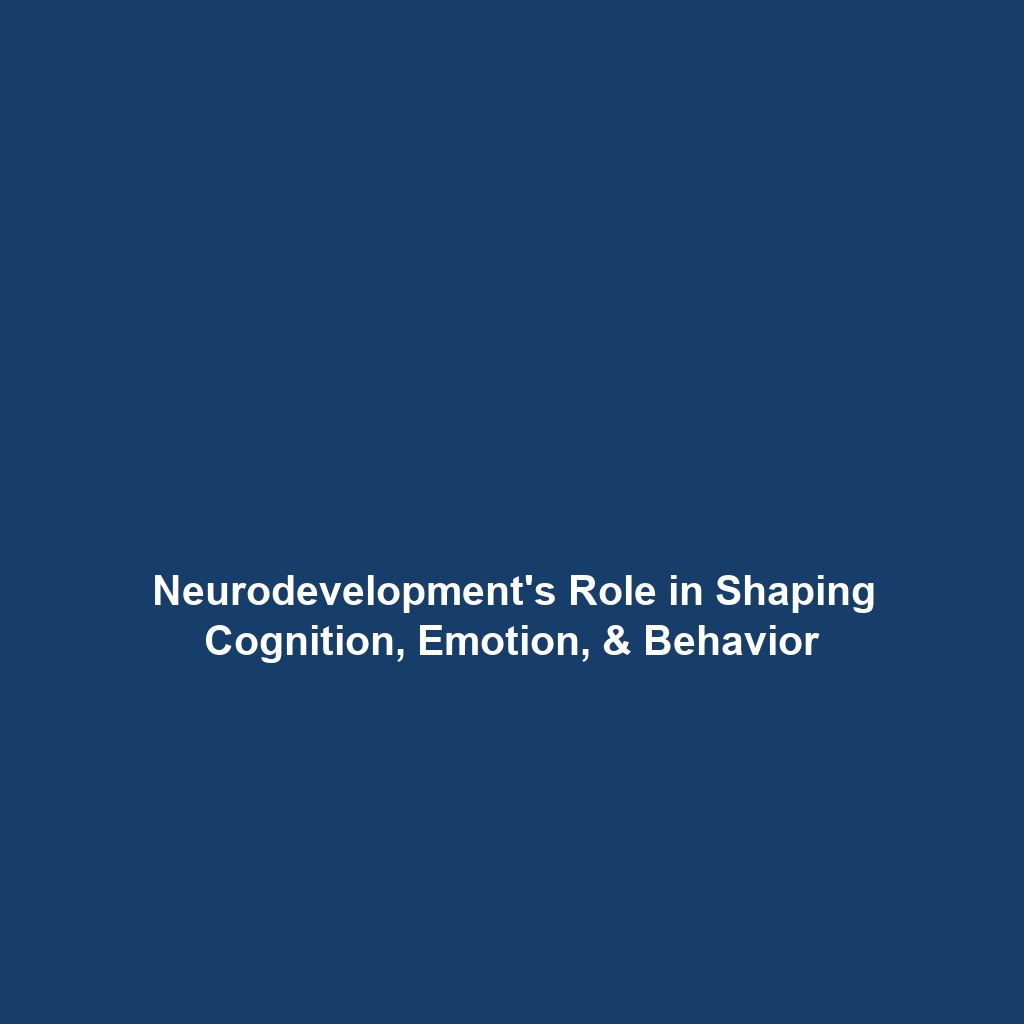Impact of Neurodevelopment on Cognition, Emotion, and Behavior
Introduction
The interplay between neurodevelopment and human functioning is a critical area of study, especially as it pertains to cognition, emotion, and behavior. Understanding how neurodevelopment influences these domains is essential within the field of biomechanics, as it explores the physical and biological implications of movement and functionality in relation to mental processes. This article delves into the significant effects of neurodevelopment on cognitive functions, emotional regulation, and behavioral patterns, emphasizing the vital connection to biomechanics.
Key Concepts
Neurodevelopmental Processes
Neurodevelopment encompasses the changes in brain structure and function from infancy through adulthood. Critical periods during which neurodevelopment occurs can have profound implications on:
- Cognitive Development: The expansion of neural connections that affects learning and memory capabilities.
- Emotional Regulation: The establishment of neural pathways that govern emotional responses and self-control.
- Behavioral Patterns: The integration of cognitive and emotional learning into observable actions.
The Intersection with Biomechanics
Biomechanics studies the mechanics of movement while considering how physical responses are influenced by cognitive and emotional states. This intersection highlights how neurodevelopmental trajectories shape physical capabilities and behaviors.
Applications and Real-World Uses
The impact of neurodevelopment on cognition, emotion, and behavior finds various real-world applications, particularly in biomechanics. These include:
- Developmental Psychology: Understanding behavioral changes in children to devise interventions for emotional and cognitive delays.
- Rehabilitation: Using biomechanical assessments to tailor therapies that consider cognitive and emotional aspects of recovery.
- Education: Implementing educational techniques that align with the cognitive strengths and emotional needs derived from neurodevelopment insights.
Current Challenges
Studying the impact of neurodevelopment on cognition, emotion, and behavior within biomechanics poses several challenges:
- Variability in neurodevelopmental milestones across populations
- Difficulties in measuring emotional and cognitive interplay during physical activities
- Limitations in current technology to assess neurodevelopmental changes in real-time
- Ethical considerations in research involving vulnerable populations
Future Research and Innovations
Future research is poised to explore the innovations in understanding the impact of neurodevelopment on cognition, emotion, and behavior within the realm of biomechanics. Potential advancements include:
- Neuroimaging technologies that provide real-time data on brain activity during physical tasks
- Personalized rehabilitation programs that integrate cognitive behavioral therapy and biomechanical training
- Enhanced educational frameworks informed by neurodevelopmental science to boost learning outcomes
Conclusion
In summary, the impact of neurodevelopment on cognition, emotion, and behavior is a vital area of study that significantly contributes to the field of biomechanics. The integration of these domains has profound implications for therapy, education, and overall human functioning. For continued exploration, consider diving into topics such as biomechanics in rehabilitation or advancements in neurodevelopment science.

Leave a Reply